By Chris Moon
Christian colleges and universities just finished the most unusual academic year in memory after the COVID-19 pandemic forced them to make a wave of adjustments in order to carry out their mission.
Some Restoration Movement schools were forced completely out of the classroom for months. And all of them instituted face mask and social distancing policies. Some classes were held outside.
In some cases, colleges combined Thanksgiving and Christmas break to keep students from bringing germs back to campus too often. And plastic shields—lots of plastic shields—now dot many college campuses.
Enrollment shrank almost across the board. But federal government assistance took away much of the financial sting from that.
The presidents of four Christian colleges—Lincoln Christian University, Hope International University, Kentucky Christian University, and Boise Bible College—shared their reflections of the school year just ended with Christian Standard.
A MIXED BAG IN ILLINOIS
“We had what I would characterize as a fairly miserable success,” said Silas McCormick, president of Lincoln Christian University in Illinois.
It was miserable because of some of the things listed above. But it was successful because students and staff remained relatively healthy, McCormick said. Only one staff member at LCU became very ill with COVID-19, and no one was hospitalized.
“Most of us objectively realized we were very fortunate, and God was good to us,” McCormick said.
LCU started the school year at the typical time last fall and eliminated all breaks to allow for a combined Thanksgiving and Christmas hiatus. But a surge of coronavirus cases in the community sent students home a week early.
Students came back in late January. Again, all breaks were skipped—even Good Friday, which McCormick called an “exceedingly unpopular decision.”
Masks became commonplace at the college, even in the dormitories. Students were spaced six feet apart in classrooms, and Plexiglas shields separated them from their professors.
A lot of classes were held outdoors, “which was kind of cool to watch,” McCormick said.
All of these changes—including no spectators for indoor athletics, very few campus visitors at all, and the school’s first-ever outdoor commencement ceremony—were taken in stride by the university community, at least at first.
“[Students] were gracious and recognized what we were doing was trying to help those around us,” McCormick said.
This was especially the case when in-person classes were cut short the previous spring when the pandemic first struck. Morale still was very good when students returned in the fall.
“Over the course of the academic year, the precaution exhaustion kicked in,” McCormick said.
More people were put off by the masks, and university constituents were increasingly frustrated by the lack of access to the campus. McCormick found virtually any decision the university made upset a large share of the campus.
“The longer it went, the less consensus there was,” he said. “It became harder and harder for people to be on the same page. They just weren’t.”
That’s one of the larger concerns McCormick has as the pandemic winds down.
He said so many decisions he made were 50-50 splits in terms of who was pleased with them and who wasn’t. He hopes that divisiveness doesn’t last.
McCormick also hopes a drop in enrollment doesn’t persist. The university’s fall head count was 598, down from 679 the previous fall.
“It’s going to be hard to dig out of,” he said. “There’s some momentum lost there.”
On the bright side, the university was able to consider its mission as a higher education community and what really is required to pursue it.
“What are the core things of what we do and are there different ways to do them? We got to live that out last year, and that was good for people,” he said.
ONLINE IN CALIFORNIA
Paul Alexander, president of Hope International University, called it a “tedious” year.
Because of strict local health policies in Orange County, Calif.—where HIU is located—the university couldn’t provide in-person learning until March. And even then, it was on a voluntary basis.
About 80 students came to campus for a small number of in-person classes.
“They like the convenience [of online learning], but they withered a bit under the constant isolation,” Alexander said.
Enrollment was down 8 percent in the traditional program, which Alexander said was in line with other colleges in the region.
HIU’s enrollment is 460 in its traditional undergraduate program and 200 in its online-only undergraduate program. It has 505 graduate students.
Alexander said projections for next school year are still about 30 days away, but “we think it’s going to be strong for us. . . . We expect it to go back up.”
Alexander said that before COVID-19, many people had a “dream” about working from home in isolation where they wouldn’t be bothered. But the shine has worn off that dream.
“People get tired of working at home,” Alexander said. “Most staff at this point want to be back.”
Alexander said the university’s finances have remained strong despite the pandemic. The college took some significant hits in lost room and board fees, as well as a washed-out conference season last summer on the university’s Fullerton campus.
But HIU was able to take advantage of some of the federal government’s aid packages, including the Paycheck Protection Program. Donations continued to come in.
“We were not significantly impacted, thankfully,” he said.
Overall, the pandemic “reinforced the need for us as an institution to be flexible in our thinking,” Alexander said.
He said faculty had to focus again on how they related information to their students and what types of things they wanted to teach in each class, focusing more intensely on the main point they wanted to drive home.
Alexander said Hope is considering offering more hybrid courses for students and allowing more flexible scheduling for staff.
“You can’t hold on to things tightly in a pandemic. There’s a place there to trust God more than you ever have,” he said.
STABLE ENROLLMENT IN KENTUCKY
At Kentucky Christian University, students were welcomed back to campus in the fall for in-person learning, but the looks of things had changed significantly.
Students were socially distanced in the classroom and in chapel. More sections of some courses were created to allow for smaller class sizes.
Food service was revamped, with more to-go meals offered. Last fall, a tent was set up on the campus where students could eat.
Students took an extended winter break from Thanksgiving to the end of January before resuming class for the spring semester.
Those safety measures seemed to work. KCU President Terry Allcorn said only 10 students tested positive in the spring.
“We feel very blessed. There were other schools who took all the measures we were and had higher positivity rates,” he said.
Enrollment, Allcorn said, was at 95 percent of the previous year’s head count. KCU’s total fall enrollment was 685.
Now the school is looking forward to a fall semester that may look much closer to “normal,” Allcorn said.
The state of Kentucky has eased several restrictions, although students as of now still are required to maintain three-foot social distance.
Allcorn said the school may keep some changes in place.
Virtual meetings are now, of course, the norm among faculty and staff. And the extended winter break may remain—keeping students from bringing germs back to campus after Thanksgiving.
“I’m perfectly comfortable with that,” Allcorn said.
Financially, KCU remains in strong shape, Allcorn said. The school has several capital improvement projects under way. Two dorms are being upgraded, and one building is getting a new roof.
One of those projects has been financed, but Allcorn said the process wasn’t impacted by COVID-19.
AN UPTICK IN IDAHO
In Idaho, Boise Bible College served as a bit of a refuge for students from Washington, Oregon, and California who make up a large portion of the student population.
COVID-19 restrictions were relatively light in Idaho, and BBC determined it would continue to host in-person learning for the duration of the year. That appealed to students coming from the West Coast, where health restrictions tended to be more strict.
Enrollment even increased slightly in the fall, said President Derek Voorhees.
“Many students loved that,” he said.
BBC’s enrollment for the year was about 90 full-time equivalent students.
Some students were able to connect virtually to their classes at times, but only in certain circumstances. BBC does not offer online degrees but was able to use some of the federal assistance provided to colleges to beef up its ability to offer hybrid learning courses, Voorhees said.
But that won’t take away the college’s focus on bringing students to the campus, where they can be mentored in face-to-face relationships with BBC’s faculty and staff.
“We value the in-person instruction in a big way,” Voorhees said.
Now the college is looking forward to next fall. Voorhees said the health trend in Boise looks favorable for a return to pre-COVID normalcy.
Recruitment, however, took a hit this past year because college recruiters weren’t able to travel nearly as much, and on-campus tours were restricted because of the pandemic.
“The jury’s out a little bit for this fall,” Voorhees said.
Still, he said he was pleased to see the flexibility of the campus community during such a difficult year.
“Watching [the faculty] be nimble has been amazing,” he said.
Voorhees said the pandemic created “a lab” for ministry students who surely will see difficult times in the churches where they serve in the future. Students also were able to observe how local churches in the area responded to the pandemic.
“All of that has been interesting for our students to glean from,” he said.
Chris Moon is a pastor and writer living in Redstone, Colorado.

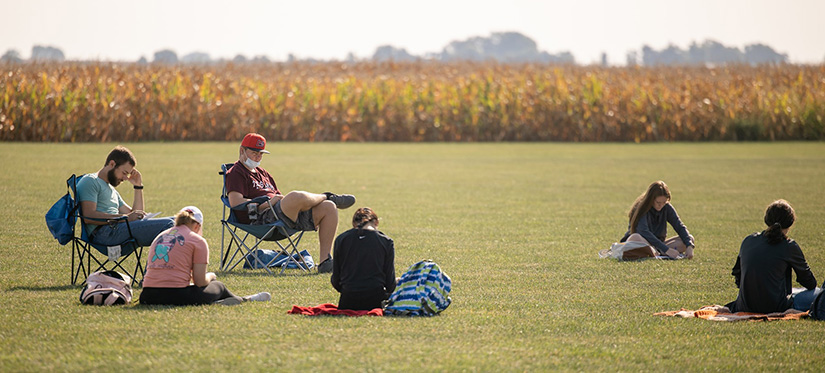
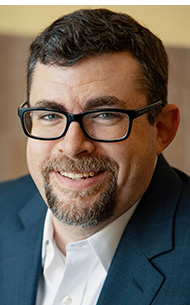
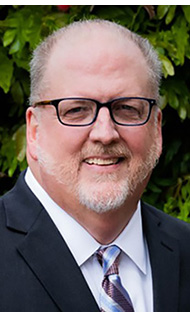
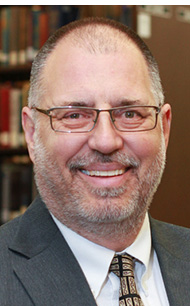
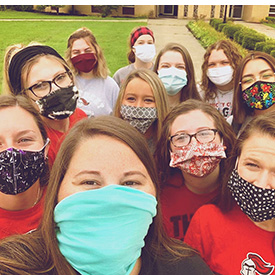
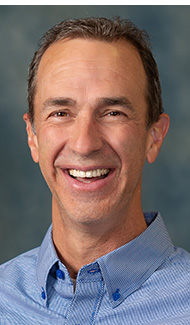
0 Comments